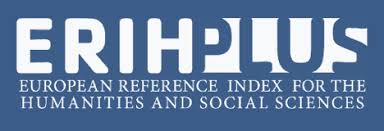№2, 2022
The article studies formation trends and innovative features of digital assets and cryptocurrencies in economic processes in the context of building an information society. The relevance of formation and regulation of new directions of effective development of the economic environment with the widespread use of digital technologies is justified. Possibilities of formation and application of cryptocurrencies in economic processes are studied, their formation factors, essence, content and innovative features were included in the research process. The scientific-methodological bases of studying the impact of the application of electronic money on the economy and business process are explored. Operation characteristics of currencies and digital assets in the virtual economic environment are explained. Formation and development stages of digital currencies according to the market value are analyzed, the main features are mentioned. The process of conducting transactions using them is presented schematically. The operation mechanism of the utilization process of blockchain technology was created. The main elements of trading with cryptocurrency market are identified based on its structural scheme. Alongside Bitcoin, the features of other alternative cryptocurrencies are analyzed. Their comparative advantages, similarities and differences, application aspects are studied. The market capitalization of cryptocurrencies is demonstrated schematically. Proposals and recommendations are developed for consideration of trends and innovative features of cryptocurrencies in new economic platforms (pp.55-63).
- Decree of the President of the Republic of Azerbaijan on improvement of administration in digital transformation field. Baku, April 27, 2021. https://president.az/articles/51299 (in Azerbaijani).
- Decree of the President of the Republic of Azerbaijan on some measures related to improvement of administration in digitalization, innovation, high technologies and communications field. Baku, October 11, 2021. https://president.az/articles/53407 (in Azerbaijani).
- Zeynelhabdin, A.B. & Ahmetbek, E.E. (2020). Cryptocurrency and blockchain technology – new realities of the modern economy. Economics: Strategy and practice, 3(15), 111-125 (in Russian).
- Aliyev, A.G., Abbasova, V.A. & Abidini, (2010). Regulation issues of implementation of electronic commerce technologies. Problems of Information Society, 1, 41-47 (in Azerbaijani).
- Aliyev, A.G. (2011). Significance and development trends of electronic money systems in economic processes. Silkway Journal, 2, 72-80 (in Azerbaijani).
- Ageev, V.N.& Vlasov, А.V. (2020). Application potential of digital financial assets. Finance Journal, 12(6), 100–112 (in Russian).
- García‑Corral et al. (2022). A bibliometric review of cryptocurrencies: How have they grown? Financial Innovation, 8(2), 1-31.
- Babkin, А.V., Burkaltseva, D.D., Pshenichnikov, V.V. & Tyulin, А.S. (2017). Cryptocurrency and blockchain technologies in digital economy: Development genesis. Scientific-technical news of Peter the Great St. Petersburg Polytechnic University. Economic Science, 10(5), 9-22 (in Russian).
- Metelkov, А.N. (2021). Cryptocurrency: Financing terrorism and protecting the digital code. Sciencesphere, 7(1), 274-279 (in Russian).
- Zharina, N.А. (2018). Cryptocurrency in Russia: Modern state and prospects of development. Socio-economic and technical systems: Research, Design, Optimization, 1(77), 80-90 (in Russian).
- Fan Fang, Carmine, Ventre, Michail, Basios, Leslie, Kanthan, David, Martinez‑Rego, Fan, Wu & Lingbo, (2022). Cryptocurrency trading: A comprehensive survey. Financial Innovation, 8(13), 1-59.
- Lyudvig,А., Zhigas, М.G. & Lavrova, L.А. (2021). Salary in cryptocurrency as a source of increasing the capitalization of the company. Bulletin of Omsk University, Economics series, 19(3), 28-37 (in Russian).
- Pavlinov, I.А., Skodorova, L.K., Pavlinova, E.I. [et al]. (2019) Digital economy: Joint monograph. Transnistrian State University named after T.G. Shevchenko, Ribnita branch. Ribnita: TSU, (Tesline), 260 p. (in Russian).
- Imamverdiyev, N. (2019). Blockchain technologies: Components, application and problems. Problems of Information Society, 2, 18–32 (in Azerbaijani).
- Zheng, Z., Xie, S., Dai, H.N., Chen, X. & Wang, H. (2018). Blockchain challenges and opportunities: A survey. International Journal of Web and Grid Services, 14(4), 352-375.
- Bokhon, К.S. (2019). Current state and prospects of development of the international cryptocurrency market. Scientific Electronic Journal Meridian, 15(33), 1-4 (in Russian).
- Rubstova, А.S. (2018). Cryptocurrencies: Target and instrument of the crime. Vector of legal science, 12, 172-181 (in Russian).
- Kochetnov, А.V. (2018). Innovative properties, positive and negative effects of cryptocurrency turnover for the economy. Finances and Credit, 24(9), 2033-2041 (in Russian).
- Mankovskiy, I.А. (2020). Cryptocurrency as an attribute of digital economy: The legal basis for the introduction to the civil turnover. On the way to civil society, 2(38), 24-30 (in Russian).
- Maurice, Omane-Adjepong & Imhotep,A. (2020). Dynamic linkages and economic role of leading cryptocurrencies in an emerging market. Asia-Pacific Financial Markets, 27, 537–585.
- Carmen, López-Martín, Sonia,M. & Raquel, A. (2021). Efficiency in cryptocurrency markets: New evidence. Eurasian Economic Review, 11, 403–431.
- Trozze, et al. (2022). Cryptocurrencies and future fnancial crime. Crime Science, 11(1), 1-35.
- Venkata, M., Bikesh, U., Jani, M. & Virpi K.T. (2020). Understanding the creation of trust in cryptocurrencies: The case of Bitcoin. Electronic Markets, 30, 259–271.
- Strogonova, Е.I. & Burda, А.G. (2019). Introduction of cryptocurrencies in the national payment banking system of the country under the conditions of digitalization of the economy. Bulletin of Knowledge Academy, 30(1), 294-297 (in Russian).
- Aliyev, A.G. & Shahverdiyeva, R.O. (2021). Formation of ICT-based technological innovation economy sectors and aspects of their impact on socio-economic processes. Problems of Information Society, 1, 94-110 (in Azerbaijani).
- Aliyev, A.G. (2021). Author’s summary of the dissertation submitted for obtaining a doctorate in research of problems of formation of information economy sectors and assessment of their innovative perspectives. Baku, 2021 (in Azerbaijani).





.jpg)









